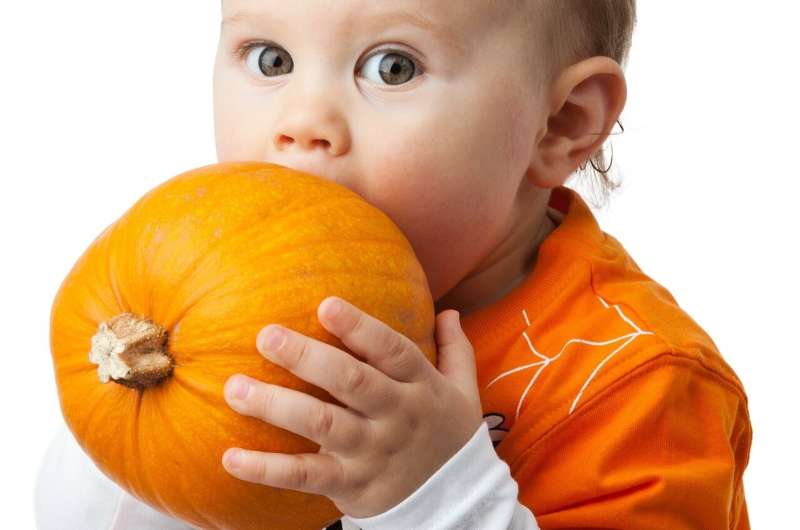Toddlers eat more vegetables if they are rewarded

New exploration becoming introduced at this year’s European Congress on Weight problems (ECO) in Maastricht, the Netherlands (4–7 Could), has observed that toddlers consume much more veggies if they are rewarded for hoping them.
Wholesome feeding on routines can decrease the risk of weight problems, cardiovascular condition and most cancers. But, as a lot of mothers and fathers know, youthful children usually never like consuming their greens.
“It can be crucial to begin having vegetables from a youthful age,” suggests researcher Britt van Belkom, of the Youth, Food & Well being method at the Institute for Foods, Health & Security by Design, Maastricht University Campus Venlo, Venlo, The Netherlands. “We know from preceding investigation that young small children typically have to try out a new vegetable 8 to ten moments ahead of they like it.
“And so we looked at irrespective of whether repeatedly inquiring youngsters to test some greens would make them a lot more inclined to eat their greens. We were being also interested in whether furnishing a entertaining reward would make a change.”
598 kids (1–4 several years previous) at day care facilities in Limburg, the Netherlands, took portion in “The Vegetable Box” plan.
Miss van Belkom and colleagues randomly assigned them to one particular of a few teams: Publicity/Reward, Publicity/No reward or Regulate (No exposure/No reward).
Individuals in the initial two groups had been given the chance to consider a vary of greens each and every day they attended their working day care center for 3 months.
All those in the “Reward” team have been offered fun, non-food rewards, this sort of as a sticker or toy crown, when they tried using some veggies.
Know-how of vegetables and willingness to taste them was calculated at the start off and conclude of the examine. Know-how was measured by showing them 14 different greens and inquiring them how several they could title. The 14 are tomato, lettuce, cucumber, carrot, bell pepper, onion, broccoli, peas, cauliflower, mushrooms, inexperienced beans, chicory, pumpkin, and asparagus.
Consumption was calculated by giving them the prospect to style bite-size parts of 6 veggies (tomato, cucumber, carrot, bell pepper, radish and cauliflower) and counting how quite a few they were keen to taste.
At the pre-check in the management team little ones could discover all-around 8 greens and post-test this increased to about 10. For the Exposure/No reward and the Publicity/Reward groups, at the pre-take a look at small children could discover all over 9 greens and just after all over 11.
For willingness to check out veggies, the highest score was 12 (small children offered 2 bite sized chunks of 6 unique veggies). At the pre-examination they had been prepared to attempt close to 5–6 vegetables in all the teams. This lessened in the regulate team, was unchanged in the Exposure/No reward team and enhanced to 7 in the Exposure/Reward team.
Pass up van Belkom suggests that “consistently presenting veggies to toddlers at day treatment facilities substantially raises their capability to acknowledge a variety of vegetables.”
“But gratifying toddlers for tasting greens seems to also raise their willingness to consider distinctive greens.”
“The style of reward is, however, really important—it must be enjoyment but not food items.”
Presenting kids a assortment of vegetables improves acceptance
Meeting: easo.org/congress/
Offered by
European Association for the Examine of Being overweight
Quotation:
Toddlers eat far more vegetables if they are rewarded (2022, May perhaps 6)
retrieved 12 Could 2022
from https://medicalxpress.com/information/2022-05-toddlers-veggies-rewarded.html
This doc is subject to copyright. Apart from any reasonable working for the goal of personal research or investigation, no
portion may be reproduced without having the penned authorization. The material is offered for details applications only.
